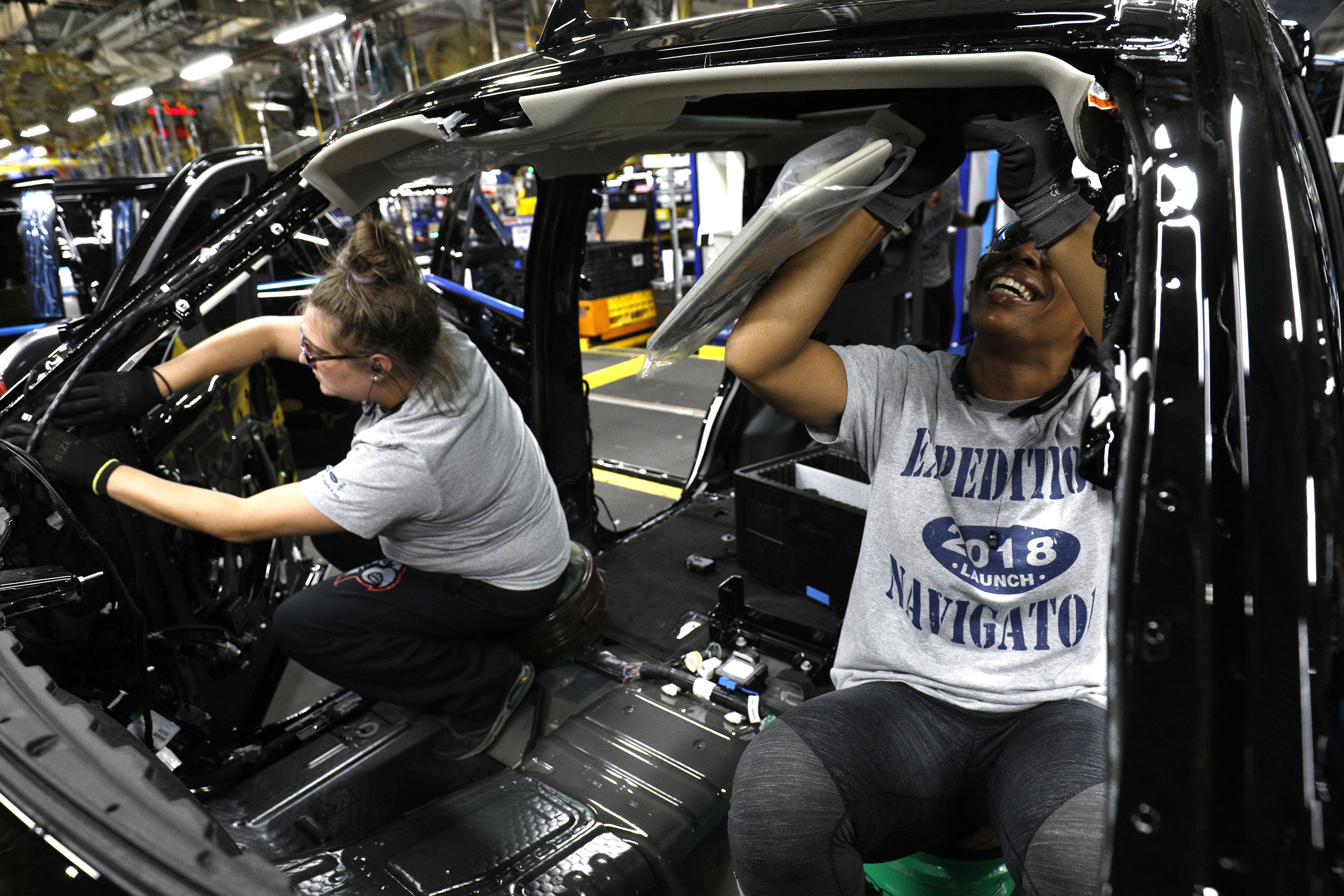US companies leery of Trump tariffs
Photo: () | ©AFP
New York (AFP) – US companies in the farm, auto and other sectors fear tariffs imposed by President Donald Trump’s administration on imported steel and aluminum will damage their businesses as Washington’s trading partners retaliate.
While Trumps’ move was praised by the steel industry, other industries bemoaned the effect of new 25 percent levies on steel and 10 percent on aluminum from the European Union, Canada and Mexico. The new tariffs took effect Friday.
“Make no mistake: restricting the raw material supply to the US and imposing tariffs on imports from our closest trading partners places American manufacturers directly in harm’s way,” said Paul Nathanson, a spokesman for the Coalition of American Metal Manufacturers and Users, which represents some 30,000 enterprises that use the affected metals.
“Plans by US manufacturers to expand will be put on hold indefinitely,” Nathanson said. “Companies will be forced into difficult choices about technology, investment and jobs.”
Trump administration officials have defended the tariffs as essential to protecting key long-suffering manufacturing capacity in steel and aluminum, which they view as crucial to national security, which includes the US economy.
“The president’s trade actions have already begun putting steel workers back to work in Ohio and Illinois, and we are grateful for the administration’s commitment to the nearly two million jobs supported by the domestic steel industry,” said Thomas Gibson, president of the American Iron and Steel Institute.
But economists warn that the negative effect of the trade actions, while diffuse, ultimately will overwhelm any upside.
The moves affect sectors that rely on aluminum for soda and soup cans and on steel for any number of construction and industrial activities. The consequences will be more severe if significant retaliatory actions harm US exports.
“While the tariffs may encourage some pickup in domestic metals activity and employment, they are likely to be a net loss for the US economy,” Oxford Economics said in a research note, which estimated a loss of 70,000 jobs due to the tariffs and a potential spillover effect in supply chain disruptions.
– Rising cost pressures –
Metals prices already had risen in anticipation of the tariffs on key suppliers. But the duties will further pinch supply chains, adding perhaps a week and a half for imported steel to clear customs, said Timothy R. Fiore, chair of the Institute for Supply Management’s Manufacturing Business Survey Committee.
“If the tariff does go into effect, the near-term effect is going to be supply disruptions and not really financial if you just look at aluminum and steel,” Fiore said Friday during briefing with reporters.
The tariffs add to the challenges facing the manufacturing sector that already was facing higher prices for oil and other commodities amid strong global demand.
Ford, which uses aluminum in its best-selling F-150 pickup trucks, said in late April that it expected to spend $1.5 billion in 2018 due to higher material costs.
Arconic, which uses aluminum for composite materials to the aviation and auto industry, cut its profit estimates due to higher costs, and other companies such as Kraft Heinz have complained of a hit from higher freight and packaging costs.
Among manufacturers, “the current plan is that these input costs will be pushed through to the consumer and we’ll see how successful that will be,” Fiore said.
– Food fight? –
Agricultural groups too have reacted negatively to the tariffs, fearful over what reaction the US moves will prompt.
Mexico has said it will impose retaliatory duties on host of agricultural goods, including pork, apples and various cheeses. Canada and the EU are also eyeing action on a wide swathe of goods that includes food.
“These tariffs will harm US farmers and take many American farm operations to the breaking point,” said Brian Kuehl, executive director of Farmers for Free Trade.
“American farmers overwhelmingly supported President Trump in 2016 but will not be silent in the face of trade wars that harm US agriculture.”
Others speaking out include Here for America, which represents international automakers and dealers that operate in the US, and the American Chemistry Council, which said the tariffs would mean higher costs to build US manufacturing capacity.
“When these tariffs go into effect on Friday, trains arriving to the US from Mexico and Canada will be carrying metals that are 25 percent more expensive than when they left the station just a few days ago,” the council said.
“The impacts will be felt immediately in the form of higher prices for chemical manufacturers who rely on these imports to expand or build new production facilities, many of which are under construction at this very moment.”
Disclaimer: This story has not been edited by Siliconeer and is published from a syndicated feed. Siliconeer does not assume any liability for the above story. Validity of the above story is for 7 Days from original date of publishing. Content copyright AFP.


